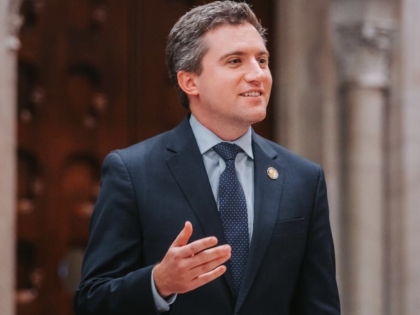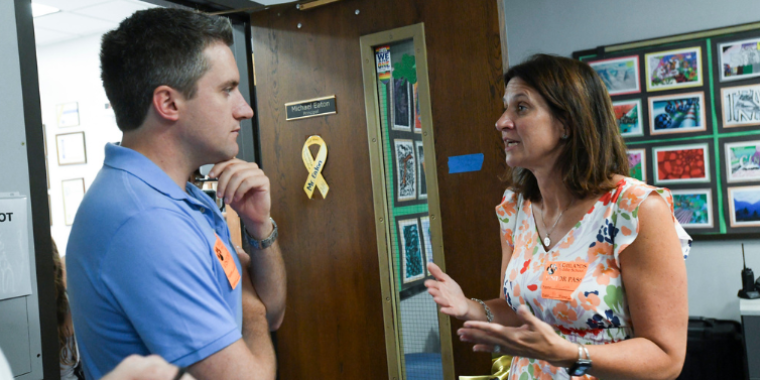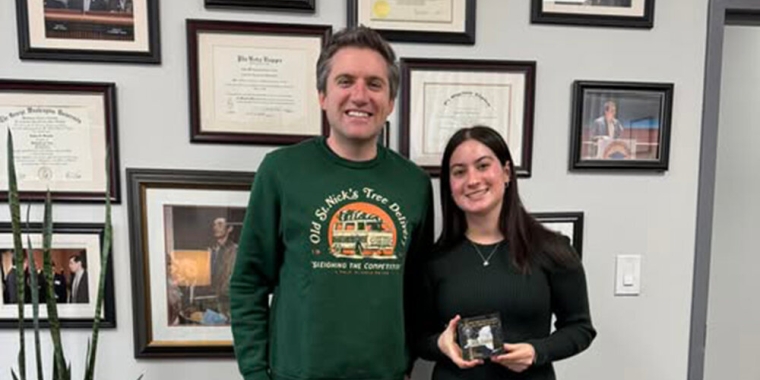
State Senator Proposes Temperature Cap for New York Classrooms

Skoudis meets with leaders of New York State United Teachers to discuss how sweltering temperatures are harming educators and students in local school buildings and facilities
The calendar may say September, but it's feeling more like the middle of summer outside. To put it bluntly, it's hot and humid out there, and that's been a trend throughout the season.
According to climate experts, this summer has been the hottest summer on record for the world by a significant margin. In New York, it's felt uncomfortable many days, but not necessarily record-breaking.
But this recent stretch of oppressive heat and humidity is coming at a difficult time for kids as they head back to school, and some say a standard must be set to ensure the health and safety of students and staff.
“It’s not unusual. We’re seeing hotter years and a hotter season,” said state Sen. James Skoufis from Cornwall.
Skoufis is proposing an 88-degree classroom temperature cap in New York.
“You can’t think straight when it’s too hot,” he said. “If you’re a kid, you can’t learn if you’re overheated. If you’re a teacher, you can’t teach.”
This would be in addition to the 65-degree minimum requirement already in place.
“Let’s be real,” Skoufis said. “This is something where, yes, there is a cost, but it needs to be done.”
Skoufis said that’s the pushback he’s seen in promoting the proposal, especially from smaller districts with older facilities. But there is state building aid available to help school districts in upgrading infrastructure like HVAC work, he said.
“There have been very substantial increases to education state aid over the last, in particular, two and three years,” Skoufis said.
Incoming freshman at the Niskayuna Central School District attended orientation in their school on Wednesday.
“This is a hot first day back to school,” said Amy Martin, a high school French teacher. “We, fortunately, have some air conditioning in our school. So it definitely helps. We’re not melting.”
The same can’t be said about outdoor school activities.
“We were supposed to meet our coach upstairs, but practice got cancelled,” said Arya Dixit, a senior athlete in the district.
A number of school districts across the state were not taking chances with the warm weather, and cancelled most afterschool programming.
“We had a meet yesterday and it was horrible,” said Thomas Canestrari, another senior athlete.
But thanks to some air conditioning, both said they’re ready to get back to work.
“As we were walking through the halls, it was just like, 'wow, we’re back,'” Dixit said. “It’s just different.”
The state’s Department of Environmental Conservation is leading an ongoing multi-agency, statewide conversation about dealing with extreme heat. The state Education Department is part of that conversation and are advocating for possible changes.


